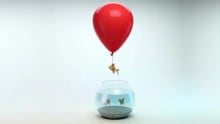Soft skills are driven by the nature of the business: AIA CHRO Aileen Tan

Organisations today are placing great emphasis on the need to equip people with soft skills. Which skills are relevant though, and how should HR teams go about evaluating and acquiring them?
People Matters asked Aileen Tan, Chief Human Resources Officer of AIA Singapore, about the strategies she and her team use to hire and train for soft skills. AIA has for some time emphasised the need for soft skills, not just for employees but for external partners such as financial advisors, and the company's skilling strategy is closely interconnected with the nature of its business.
What are the soft skills that AIA focuses on when training employees? How do these skills correlate with the capabilities needed to future-proof the insurance industry?
As a life insurer, customer-centricity is paramount to our business. Employing design thinking when evaluating our current processes is very important. To do so, we leverage vast amounts of data to make sense of it in service of the customer and their needs. Teamwork absolutely makes the dream work, so we inculcate good communication skills and growth mindset in all employees. We look for people who are team players as we want to instil a culture of continuous learning and collaboration.
It is very difficult to predict what skills are required beyond the next decade or so. However, essential skills such as critical thinking, problem solving, and the ability to work across different functions are what we feel are genuinely important to keeping employees relevant even as the very nature of the jobs evolve.
When hiring, most candidates would probably already come equipped with some soft skills. Could you share how you identify and assess their proficiency in these skills?
We use behavioural interview techniques to evaluate how candidates can demonstrate their soft skills in real life scenarios—not just theoretical cases but getting them to showcase actual examples.
We also conduct reference checks to verify and validate the candidate’s capability. For certain positions, there are additional screening tests for some positions to help us understand and identify the best person for those roles.
With L&D being increasingly digitalised today, how do you see technology being leveraged to help people develop the specific soft skills they need, especially skills that are heavily used in interpersonal interactions?
A month into the circuit-breaker period last year, we realised that remote working would become the new normal for longer than anticipated. At the same time, we did not want to compromise on employee development; particularly soft skills which are usually picked up during day-to-day interactions with teammates and colleagues from different departments.
In May 2020, we partnered with Hyper Island to proactively engage with our entire employee base to embrace a culture of experimentation and innovation, equipping them to stay on the pulse of business and technology as we transformed into a digital-first insurer.
Applying human-centred methodologies, we co-designed Digital Ei8ht, an agile collaboration programme that moved beyond the typical isolated one-off training workshops and pivoted towards online live-learning sessions for employees.
Digital Ei8ht uses a stack of digital tools such as live-learning sessions, video conferencing, and chatbots to gamify and build a structured learning process for our colleagues.
We found that technology allowed us to adopt a hybrid approach to learning. It gave employees the flexibility needed to kickstart their journey by starting with simple lessons on basic concepts, before following up with in-person sessions, conducted via Zoom or Teams. This process facilitates in-depth discussions and allow employees to apply the skills taught.
To summarise, technology enhances the concept of microlearning – putting learning in small highly focused chunks and providing quick answers to specific issues.
What are your thoughts on the use of data and analytics to evaluate soft skills, both for individuals and for the talent pool as a whole? How is AIA currently using these tools?
We are currently developing a system that collates data on the traits and skills of colleagues to better understand what is needed for them to succeed at their respective roles. Machine learning helps us trawl through the data and generate actionable insights, allowing for better evaluation of current employees and prospective candidates.
Finally, what is one set of soft skills you currently focus on equipping managers with? How are you advancing your strategy for developing those skills?
One important soft skill we emphasise is mental resilience. Mental health is finally slowly becoming destigmatised as a subject of discussion but there is so much more we can do to prioritise emotional wellness as a society.
In Q4 2020, we trialled a new stress and wellness management training programme for 350 people managers in AIA Singapore. The idea was to help them identify common mental health issues among employees and enable them to offer the correct assistance. The results were overwhelmingly positive. At the beginning, more than 25 percent of participants reported feeling “tired”, “stressed”, and/or “overwhelmed” in their daily work. By the end, there was a marked shift in those descriptions. 91 percent of participants’ language indicated that the shift towards more positive, optimistic, and selfless mindsets had almost quadrupled as a result of the programme.
We believe in the importance of extending such training to all our stakeholders, including external customers. To tide Singaporeans through the mental health crisis brought on by the pandemic, we partnered with Potential Project to offer complimentary Resilience Mindset training to all our employees and corporate solutions customers. As Singapore’s largest employee benefits insurer, this meant that 1.2 million workers, or 1 in 3 employed, now had access to mental resilience training at no added cost.
In the long term, we are also looking at coaching as a skill for all people managers. Our brand promise is to bring Healthier, Longer, Better Lives to customers, and we believe that this change must start from within. With the mental resilience training scheme and focus on employee wellness, we are doing our part to keep the Singapore workforce healthy, not just physically, but emotionally.




